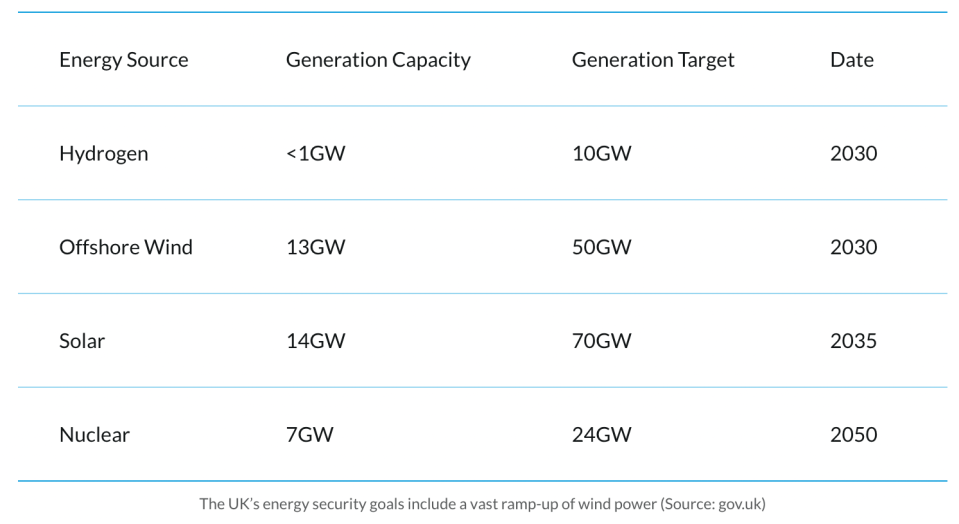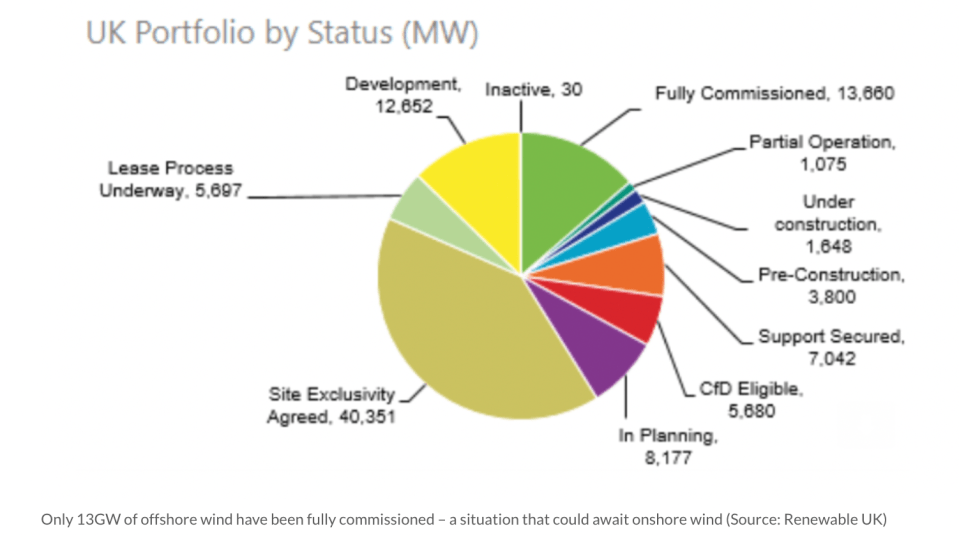Miliband backs campaign calling for environmental assessment to be scrapped

Former Labour leader and current frontbencher Ed Miliband has backed a campaign to scrap environmental impact assessments.
The initiative includes a bid to build wind turbines and solar panels alongside a full-scale deployment of small modular reactors.
Britain Remade announced its proposals to ramp up renewable power to cut 40m tonnes of CO2 per year – the equivalent of taking 31m cars off the road.
It said the UK needs unlock another 70GW of renewable energy generation – on top of the 40GW currently available – by 2030 to be energy secure.
The group’s ‘Powerbook Report’ suggests a number of proposals including fast-tracking clean energy projects within designated zones, speeding up the deployment of small modular reactors by streamlining the regulatory approval process and ending the ban on onshore wind in England.
Miliband said it “is exactly the kind of ambition we need to drive towards clean power by 2030. It can lower bills, make us more energy secure, create jobs and once again show global climate leadership.
“I urge all those serious about the green transition to show the scale of vision contained in this document. I look forward to building the broadest coalition to make it happen.”
Miliband is shadow secretary of state for climate change and net zero, and his support for the report could give an indication of how radical Labour’s energy policy could be if it wins the upcoming election next year.
City A.M. has approached Miliband for comment.
Britain Remade seeks to ease planning hurdles
Britain Remade is proposing a major update to the planning system to slash red tape which is holding back more sources of energy being built.
This includes the creation of new ‘clean power zones’ across the country, modelled on policies already in place in Spain.
These would provide fast-tracked planning approval for new clean energy projects by eliminating environmental impact assessments in all but exceptional cases for all onshore wind, up to 75MW, and solar projects of 150MWs and under.
It is also calling for ending the de-facto moratorium on new onshore wind developments in England, so that at least 20GW of onshore wind generation can be installed by 2030.
Currently, 14GW of onshore wind are installed in the UK – however generation has flatlined over the past decade.
This revival would be achieved through removing requirements for unanimous support with a planning application, and replacing it with a ‘Community Safeguard’.

It means projects would go ahead unless a majority of local residents actively oppose it.
Britain Remade also calculates clean power zones would cut the time it takes to build a new offshore wind farm will need to be slashed to just five years.
Under current rules it can take up to 13 years for an offshore wind farm to progress through the planning system and start generating power, despite construction of the turbines only taking two to three years.
Just last month the government announced a five-month delay to the Hornsea Four offshore wind farm.
In development since 2018, the project has the potential to power two million homes with clean energy.
Research carried out by Britain Remade found that the environmental impact assessment for the East Anglia Two offshore wind farm, which will provide 800,000 homes with clean renewable energy, ran to 10,961 pages.
It is also pushing for new small modular reactors to be built as quickly as possible, from a shortlist of sites drawn up by industry vehicle Great British Nuclear.
Britain Remade wants to see at least two SMRs connected to the grid with more under construction in less than seven years.

It contrasted its suggestions with the 2020 planning application for proposed nuclear facility Sizewell C has ballooned to contain over 4,000 documents, with the environmental statement for the new nuclear power station alone stretching to over 44,260 pages – almost 13,000 pages longer than Hinkley Point C’s.
Sam Richards, founder and campaign director for Britain Remade, said: “The measures we’ve outlined would not only put rocket boosters under the delivery of new clean energy developments across Britain, but people that live near new energy infrastructure the benefit of lower bills- all while significantly boosting nature.
Greg Jackson, chief executive of Octopus Energy, also welcomed the report – hosting its launching at the supplier’s London headquarters today.
He said: “Clean, green energy is the biggest opportunity for economies and businesses since the internet. But there are two giant obstacles stopping a great swathe of British renewables being built – planning and grid connections.
“Readily available investment is impossible to deploy in the UK because the grid system was just not built for a renewable revolution. We need to increase the pace of development 20-fold, and allow faster grid connection and better community buy-in for onshore wind and solar. This will bring down costs and deliver good green growth – a win-win for all.”